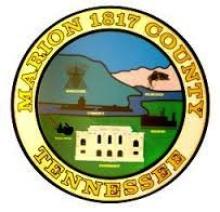Local Communities Appeal to State Leaders: Change State Anti-Muni Law
Some of us remember it - not so fondly - as a discarded relic of an early era of the Internet. But it’s not a relic for people in some parts of rural Tennessee: the awful sound of a dial-up modem.
There are approximately 28,000 people living in the county and as Marion County Mayor David Jackson tells it, he knows residents with no Internet access at all. Some of Marion County residents with nothing better than dial-up can actually look across the Tennessee River and see buildings and houses served by Chattanooga's EPB’s gigabit Fiber-to-the-Home (FTTH) network.
Given this stark contrast, it’s no wonder the push is intensifying for more access to publicly owned Internet networks in Tennessee.
Marion County Wants Local Authority
Elected officials from the Marion County Commission and the town of Kimball are the latest communities to vote on resolutions asking state leaders to change Tennessee’s state anti-muni law. The legal barrier prevents existing municipal utilities from expanding their fiber network footprints to provide telecommunications services to neighboring communities.
In fact, city leaders in every Marion county municipality have plans to vote on their own resolutions asking the same thing: give us the local authority to decide for ourselves.
While the U.S. Court of Appeals considers whether or not to reverse the FCC decision to roll back the state barrier, communities are calling on the legislature to solve the problem by restoring local authority.
As Communities Succeed, the Municipal Fiber Movement Grows
These communities hope that changing the law will enable Chattanooga to extend its much celebrated EPB network to serve the people of Kimball and other communities in Marion County. The efforts come in the wake of similar requests out of Bradley County.



